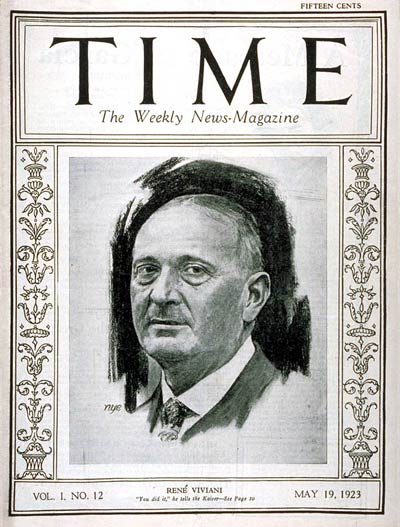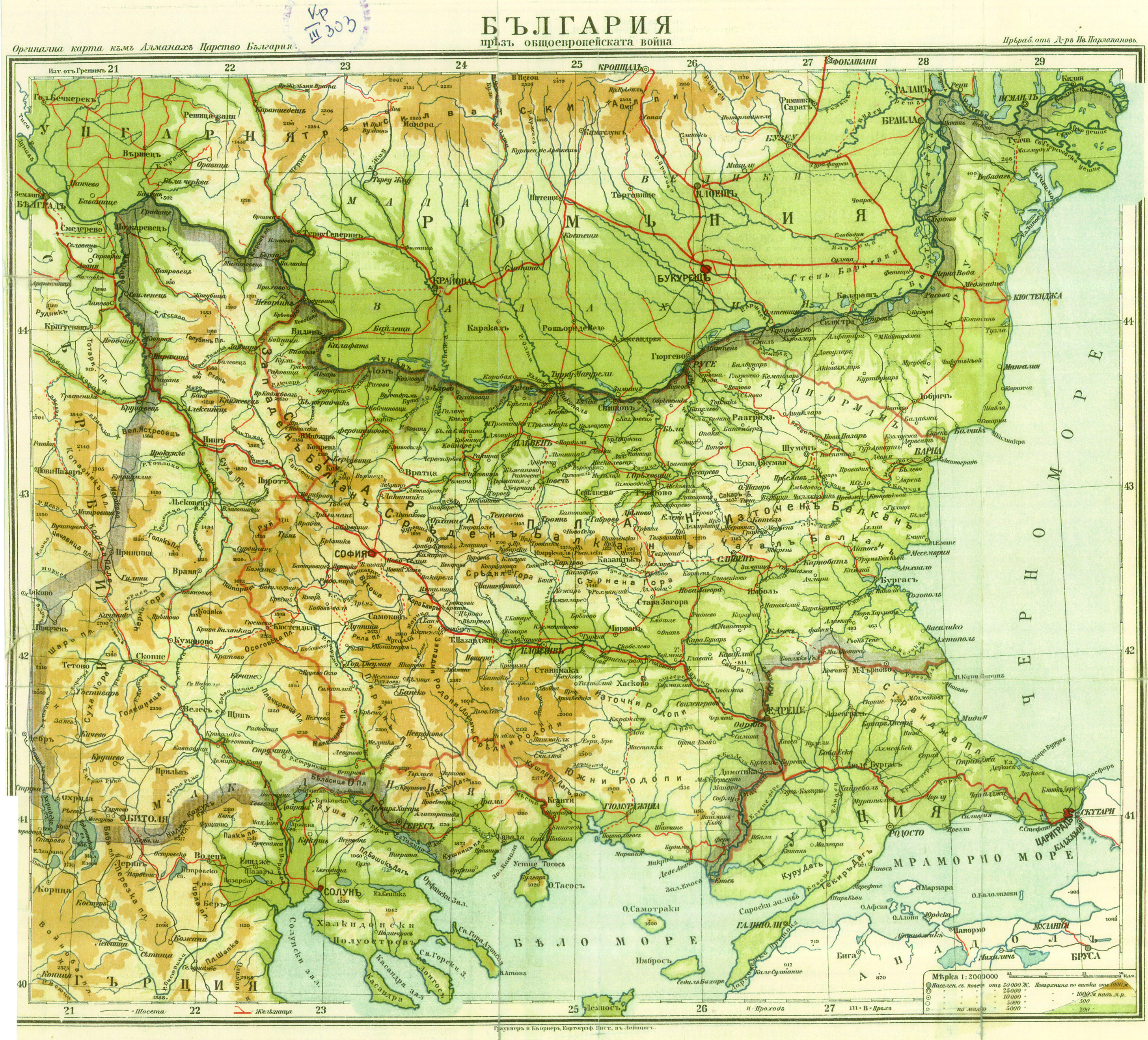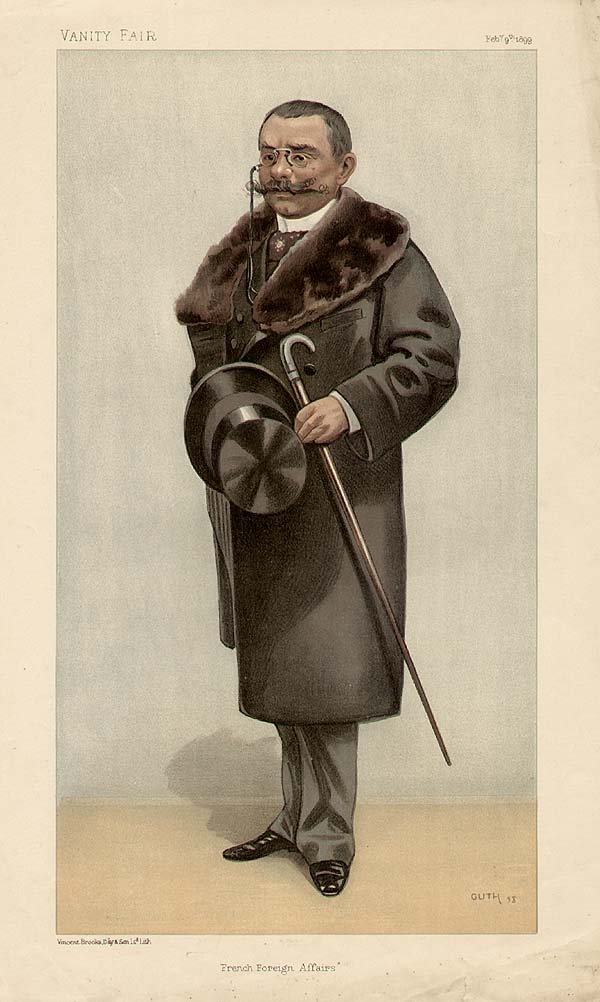|
René Viviani
Jean Raphaël Adrien René Viviani (; 8 November 18637 September 1925) was a French politician of the Third Republic, who served as Prime Minister for the first year of World War I. He was born in Sidi Bel Abbès, in French Algeria. In France he sought to protect the rights of socialists and trade union workers. Biography René Viviani was born in Algeria in a family of Italian immigrants. His parliamentary career began in 1893, when he was elected deputy of the fifth ward in Paris. He retained this office until 1902, when he failed to be reelected, but four years later he was elected deputy of the Department of Creuse. In the same year he entered the cabinet of Georges Clemenceau. At an early age he associated himself with the Socialist party, soon becoming one of its most brilliant orators and prominent leaders. When the party was reorganized in 1904 into the Unified Socialist party, Viviani, like fellow Socialist Aristide Briand, stayed outside, and thenceforth called ... [...More Info...] [...Related Items...] OR: [Wikipedia] [Google] [Baidu] |
Prime Minister Of France
The prime minister of France (french: link=no, Premier ministre français), officially the prime minister of the French Republic, is the head of government of the French Republic and the leader of the Council of Ministers. The prime minister is the holder of the second-highest office in France, after the president of France. The president, who appoints but cannot dismiss the prime minister, can ask for their resignation. The Government of France, including the prime minister, can be dismissed by the National Assembly. Upon appointment, the prime minister proposes a list of ministers to the president. Decrees and decisions signed by the prime minister, like almost all executive decisions, are subject to the oversight of the administrative court system. Some decrees are taken after advice from the Council of State (french: link=no, Conseil d'État), over which the prime minister is entitled to preside. Ministers defend the programmes of their ministries to the prime minister, wh ... [...More Info...] [...Related Items...] OR: [Wikipedia] [Google] [Baidu] |
Alexandre Millerand
Alexandre Millerand (; – ) was a French politician. He was Prime Minister of France from 20 January to 23 September 1920 and President of France from 23 September 1920 to 11 June 1924. His participation in Waldeck-Rousseau's cabinet at the start of the 20th century, alongside the Marquis de Galliffet, who had directed the repression of the 1871 Paris Commune, sparked a debate in the French Section of the Workers' International (SFIO) and in the Second International about the participation of socialists in bourgeois governments. Biography Early life and religion Millerand was brought up in Paris, to Jean-François Millerand and Amélie-Mélanie Cahen of Alsatian Jewish origin, while his paternal family originated from Franche-Comté. Millerand was baptized in 1860, while his mother converted to Catholicism. However, Millerand later became an agnostic, even going as far as to participate in a civil marriage ceremony. He temporized later on letting his children being baptize ... [...More Info...] [...Related Items...] OR: [Wikipedia] [Google] [Baidu] |
Minister Of Defence (France)
The Minister of the Armed Forces (french: Ministre des armées, ) is the leader and most senior official of the French Ministry of the Armed Forces, tasked with running the French Armed Forces. The minister is the third highest civilian having authority over France's military, behind only the President of the Republic and the Prime Minister. Based on the governments, they may be assisted by a minister or state secretary for veterans' affairs. The office is considered to be one of the core positions of the Government of France. Since 20 May 2022, the Minister of the Armed Forces has been Sébastien Lecornu, the 45th person to hold the office. History The minister in charge of the Armed Forces has evolved within the epoque and regimes. The Secretary of State of War was one of the four specialised secretaries of state established in France in 1589. This State Secretary was responsible for the French Army (similarly, the Naval Ministers of France and the Colonies was create ... [...More Info...] [...Related Items...] OR: [Wikipedia] [Google] [Baidu] |
Minister Of Foreign Affairs (France)
The Ministry for Europe and Foreign Affairs () is the ministry of the Government of France that handles France's foreign relations. Since 1855, its headquarters have been located at 37 Quai d'Orsay, close to the National Assembly. The term Quai d'Orsay is often used as a metonym for the ministry. Its cabinet minister, the Minister of Europe and Foreign Affairs (french: Ministre de l'Europe et des Affaires étrangères) is responsible for the foreign relations of France. The current officeholder, Catherine Colonna, was appointed in 2022. In 1547, royal secretaries became specialised, writing correspondence to foreign governments and negotiating peace treaties. The four French secretaries of state where foreign relations were divided by region, in 1589, became centralised with one becoming first secretary responsible for international relations. The Ancien Régime position of Secretary of State for Foreign Affairs became Foreign Minister around 1723; Charles Hélion Marie le Gen ... [...More Info...] [...Related Items...] OR: [Wikipedia] [Google] [Baidu] |
President Of The Council Of Ministers
The President of the Council of Ministers (sometimes titled Chairman of the Council of Ministers) is the most senior member of the cabinet in the executive branch of government in some countries. Some Presidents of the Council of Ministers are the heads of government, and thus are informally referred to as a Prime Minister or Premier. Countries currently using the title * Chairman of the Council of Ministers of Bosnia and Herzegovina * President of the Council of Ministers of Italy * President of the Council of Ministers of Peru * President of the Council of Ministers of Poland In Supranational organisation * Chairman of the Council of Ministers of the Union State of Russia and Belarus Countries that previously used the title * President of the Council of Ministers (Empire of Brazil) (1847–1889) * President of the Council of Ministers (United States of Brazil) (1961–1963) * Chairmen of the Council of Ministers (Bulgaria) (1879–1991) * President of the Counci ... [...More Info...] [...Related Items...] OR: [Wikipedia] [Google] [Baidu] |
Paul Dussaussoy
Paul Dussaussoy (6 January 1860 – 15 March 1909) was a French lawyer and politician. Born in Dunkirk, Nord, he was a deputy to the national assembly from 1893 to 1902 and again from 1906 until his premature death in 1909. He introduced the first French bill that proposed to give votes to women, at first limited to local elections. Family Paul Dussaussoy came from a family of industrialists with a tradition of parliamentary activity. His family were great industrialists in the Nord region. His grandfather – Omer Dussaussoy – was a deputy during the July Monarchy. His father – Paul Antoine Dussaussoy-Hubert (1820–87) – was a Bonapartiste who was deputy for Pas-de-Calais from 1876 to 1878 and 1885–87. His wife – Marthe Leduc – was the sister of Jeanne Leduc, who was married to industrialist and politician Jean Plichon. Career Dussaussoy became an advocate at the Paris Court of Appeal. In 1889 he was elected councilor for the canton of Marquise in the Pas-de- ... [...More Info...] [...Related Items...] OR: [Wikipedia] [Google] [Baidu] |
Joseph Gallieni
Joseph Simon Gallieni (24 April 1849 – 27 May 1916) was a French soldier, active for most of his career as a military commander and administrator in the French colonies. Gallieni is infamous in Madagascar as the French military leader who exiled Queen Ranavalona III and abolished the 350-year-old monarchy on the island. He was recalled from retirement at the outbreak of the First World War. As Military Governor of Paris he played an important role in the First Battle of the Marne, when Maunoury's Sixth Army, which was under his command, attacked the German west flank. A small portion of its strength was rushed to the front in commandeered Paris taxicabs. From October 1915 he served as Minister of War, resigning from that post in March 1916 after criticizing the performance of the French Commander-in-Chief, Joseph Joffre (formerly his subordinate, earlier in their careers), during the German attack on Verdun. He was made Marshal of France posthumously in 1921. Early lif ... [...More Info...] [...Related Items...] OR: [Wikipedia] [Google] [Baidu] |
Bulgaria During World War I
The Kingdom of Bulgaria participated in World War I on the side of the Central Powers from 14 October 1915, when the country declared war on Kingdom of Serbia, Serbia, until 30 September 1918, when the Armistice of Salonica came into effect. After the Balkan wars of 1912 and 1913, Bulgaria was diplomatically isolated, surrounded by hostile neighbors and deprived of Great Power support. Negative sentiment grew particularly in Third French Republic, France and Russian Empire, Russia, whose officials blamed Bulgaria for the dissolution of the Balkan League, an alliance of Balkan states directed against the Ottoman Empire. Bulgarian defeat in the Second Balkan War in 1913 turned revanchism into a foreign policy focus. When the First World War started in July 1914, Bulgaria, still recovering from the economic and demographic damage of the Balkan Wars, declared neutrality. Strategic location and a strong military establishment made the country a desired ally for both warring coalitio ... [...More Info...] [...Related Items...] OR: [Wikipedia] [Google] [Baidu] |
Second Battle Of Champagne
The Second Battle of Champagne ( or Autumn Battle) in World War I was a French offensive against the German army at Champagne that coincided with an Anglo-French assault at north-east Artois and ended with French retreat. Battle On 25 September 1915, twenty divisions of the Second Army and Fourth Army of (GAC, Central Army Group), attacked at with each division on a front. A second line of seven divisions followed, with one infantry division and six cavalry divisions in reserve. Six German divisions held the line opposite, in a front position and the (, Reserve Position) further back. French artillery observers benefited from good weather but on the night of 24/25 September, heavy rain began and fell until midday. The German front position was broken in four places and two of the penetrations reached as far as the , where uncut barbed wire prevented the French from advancing further. In one part of the line, the French artillery barrage continued after the first German ... [...More Info...] [...Related Items...] OR: [Wikipedia] [Google] [Baidu] |
Théophile Delcassé
Théophile Delcassé (1 March 185222 February 1923) was a French politician who served as foreign minister from 1898 to 1905. He is best known for his hatred of Germany and efforts to secure alliances with Russia and Great Britain that became the Entente Cordiale. He belonged to Radical party and was a protege of Léon Gambetta. Biography Delcassé was born at Pamiers, in the Ariège département. He wrote articles on foreign affairs for the ''République Française'' and ''Le Temps'', and in 1888 was elected ''conseiller général'' of his native ''département'', standing as "''un disciple fidèle de Léon Gambetta''." In the following year he entered the chamber as deputy for Foix. Colonial affairs Delcassé was appointed under-secretary for the colonies in the second Ribot cabinet (January to April 1893), and retained his post in the Dupuy cabinet till its fall in December 1893. It was largely owing to his efforts that the French colonial office was made a separate de ... [...More Info...] [...Related Items...] OR: [Wikipedia] [Google] [Baidu] |
Auguste Dubail
Augustin Yvon Edmond Dubail (15 April 1851 – 7 January 1934) was a French Army general. He commanded the First Army and Army Group East during World War I. Biography Augustin Dubail was born in Belfort on April 15, 1851. He graduated from the military school of Saint-Cyr in 1870 and was commissioned an officer in the infantry. During the Franco-Prussian War Dubail fought at Saarbrücken, Spicheren, Borny before being captured at Metz. After the war Dubail served as a professor at Saint-Cyr, as an officer on the border and in Algeria, where in 1901 he became colonel of the 3rd Zouaves. In 1904–1905 Dubail served twice as chief of staff of the French Minister of War Maurice Berteaux. Promoted to brigadier general, Dubail commanded the 53rd Infantry Brigade, the 5th Infantry Brigade and the 14th Infantry Brigade and was commandant of Saint-Cyr (1906–1908) before being appointed to the technical committee of the infantry. During the Agadir Crisis in 1911 Dubail was Ch ... [...More Info...] [...Related Items...] OR: [Wikipedia] [Google] [Baidu] |
Noël Édouard, Vicomte De Curières De Castelnau
Noël Édouard, vicomte de Curières de Castelnau (24 December 1851 – 19 March 1944) was a French army general, army group commander and Chief of Staff of the Armed Forces during the First World War. Elected deputy in 1919 and president of the Army Commission in the legislature, he then took the head of a confessional political movement, the ''Fédération Nationale Catholique''. During the Second World War, he opposed Marshal Pétain and the Vichy regime and supported the French Resistance. For a long time controversial because of a Catholicism that was considered outrageous by his opponents, historians have moderated that portrait by emphasising his great loyalty to republican institutions and disputed in particular that he could have been reactionary or anti-Semitic. Early life The son of Michel de Castelnau, mayor of Saint-Affrique, Noël Édouard Marie Joseph de Curières de Castelnau was born in Saint-Affrique, into an aristocratic family of the Rouergue. He is the third ... [...More Info...] [...Related Items...] OR: [Wikipedia] [Google] [Baidu] |

.jpg)
.jpg)



